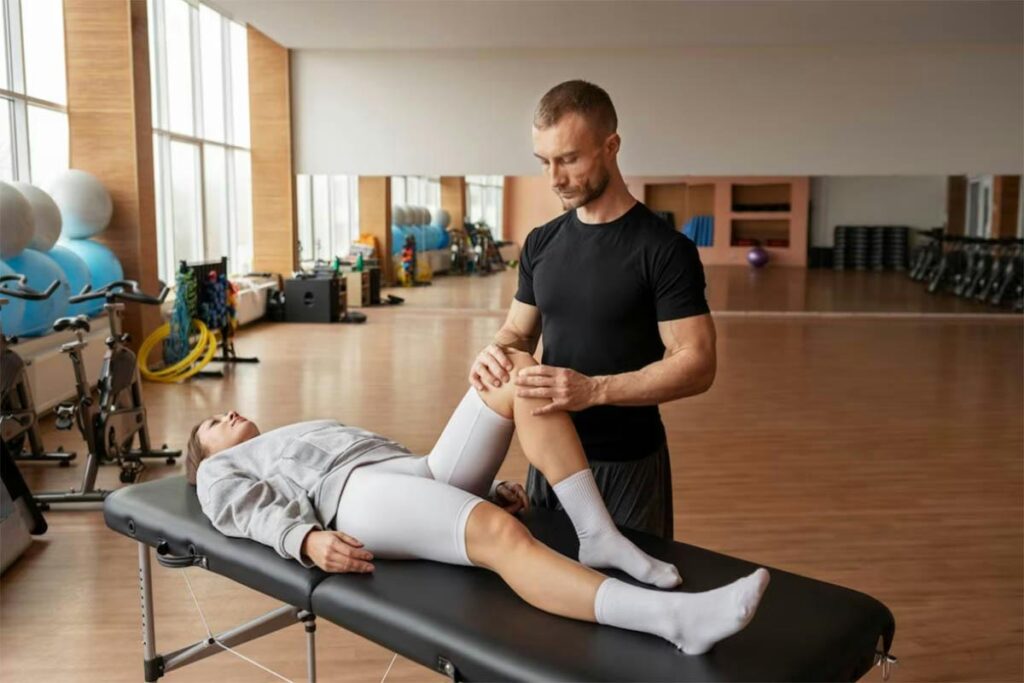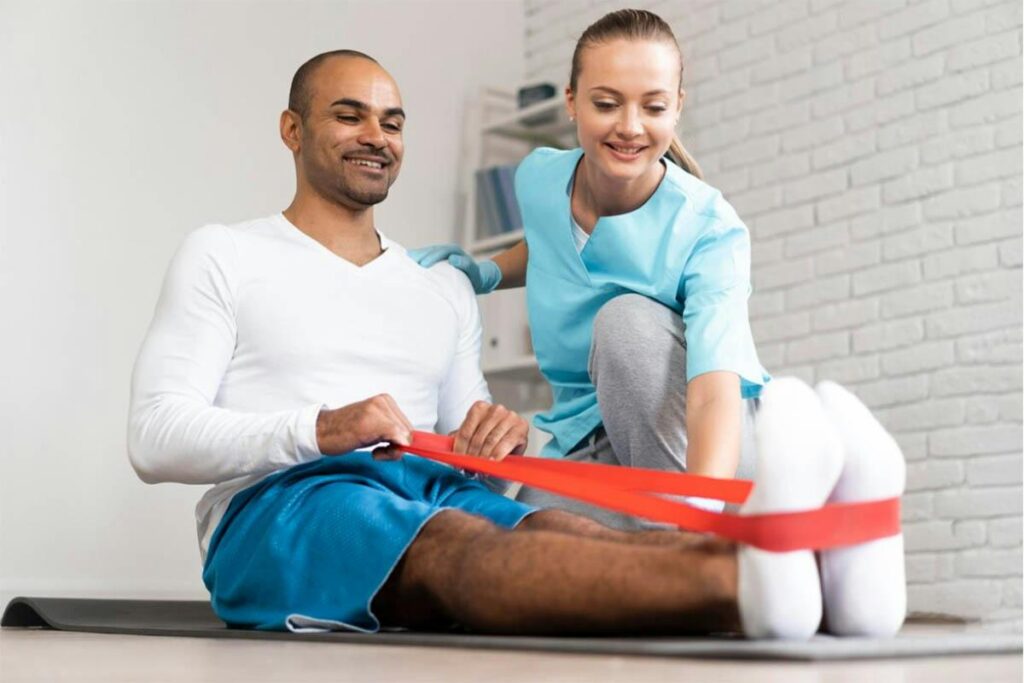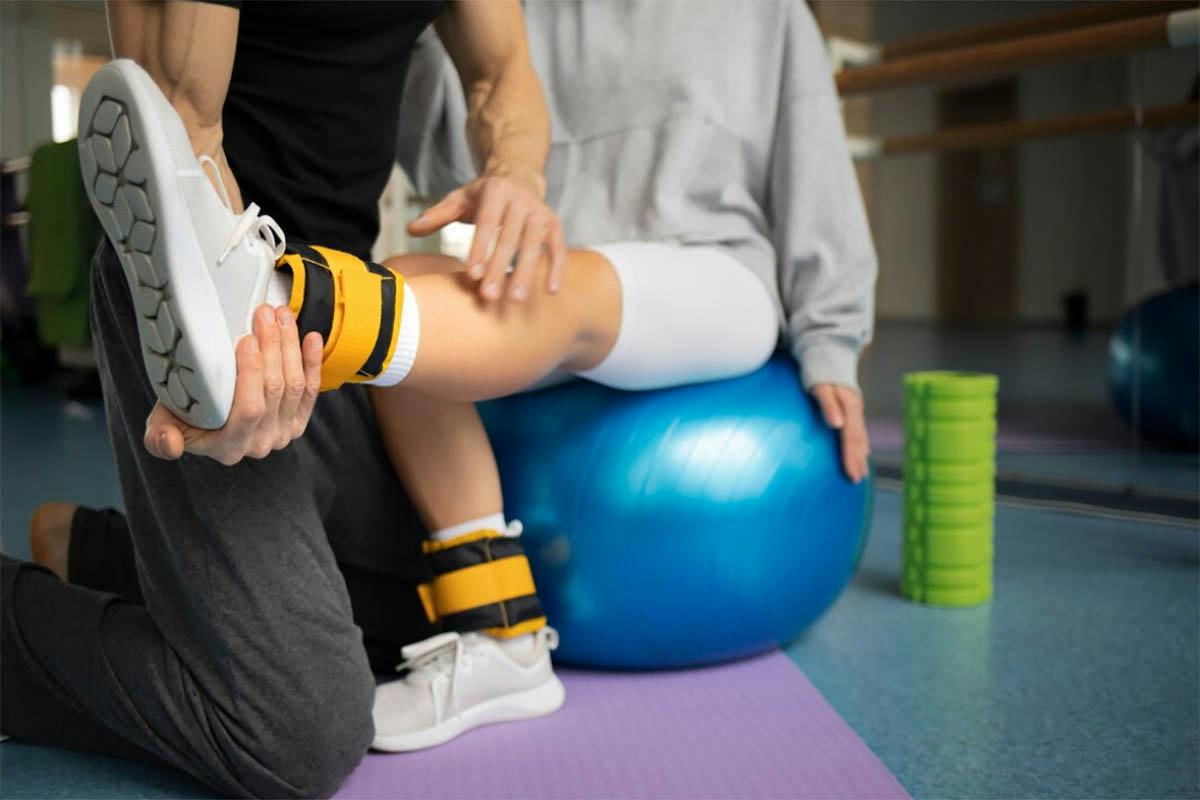Introduction
In the world of sports, where every stride and movement counts, athletes constantly seek ways to enhance their performance and prevent injuries. One of the game-changers in this quest is sports physical therapy for athletes. Let’s delve into the seven key advantages that make it an indispensable tool for those aiming for peak performance.
Advantages of Physical Therapy for Athletes

Utilizing evidence-based practices in sports physical therapy can enhance healthcare quality, mitigate medical errors, and achieve a balanced consideration of known benefits and risks.
Let’s explore specific areas where physical therapist for athletes excels, offering targeted benefits beyond generic advantages.
Enhanced Range of Motion
- Physical therapy employs targeted exercises and stretches to enhance flexibility, ensuring athletes can move freely and execute precise movements crucial for their respective sports.
Enhanced Neuromuscular Control
- Improving neuromuscular control not only improves performance but also reduces the risk of injuries.
- Physical therapy for athletes focuses on refining neuromuscular control, ensuring that muscles respond promptly and accurately to signals from the nervous system.
Technique Refinement
- Physical therapists work closely with athletes to refine their techniques, addressing subtle flaws that could impact performance or lead to injuries.
- This attention to detail can significantly impact an athlete’s overall skillset.
Muscle Balance
- Muscle development imbalances can lead to many issues, from poor posture to increased injury risk.
- Physical therapy targets muscle imbalances, ensuring that all muscle groups are appropriately developed and balanced, contributing to better overall performance.
Increased Power, Strength, and Speed
- Through tailored exercises, athletes can build the specific muscle groups needed for explosive movements, giving them a competitive edge in their respective sports.
Management of Joint Torque
- Athletes often subject their joints to significant stress.
- Physical therapists specialize in managing joint torque, helping athletes mitigate the impact on their joints, reduce wear and tear, and prevent long-term damage.
Preparing Athletes for Coaching
- Physical therapists provide insights into injury prevention, recovery strategies, and overall wellness, empowering athletes to make informed decisions about their training and performance.
When to Consult Elite Sports Physical Therapists

Recognizing the need for specialized care is vital for athletes. Elite sports physical therapists, including those serving as a physical therapist for sports teams, bring a depth of experience and understanding of the unique demands of different sports.
Now, let’s explore the various scenarios in which consulting elite sports physical therapists, especially a physical therapist for sports teams, proves to be not just beneficial but essential for athletes.
Injury Recovery: After sustaining an injury, seeking the expertise of elite sports physical therapists is crucial for a tailored recovery plan.
Preventive Assessment: Regular consultations with these experts serve as preventative measures, identifying potential issues before they escalate into injuries.
Performance Optimization: Athletes can benefit from optimizing their physical condition even without injuries, enhancing overall athletic performance.
Pre-season Preparation: Most sports physical therapists actively engage in injury registration and pre-season assessments for athletes, working closely to ensure peak condition and minimize injury risks during intense periods before the start of a season.
Post-season Evaluation: After a season concludes, athletes can undergo evaluations as a crucial component of therapy for athletes. This process addresses accumulated stress or potential issues, preparing athletes effectively for the upcoming season.
Conclusion
In the dynamic world of sports, where every advantage matters, Physical Therapy Roseburg Oregon emerges as a key player. The advantages are multifaceted, from enhancing range of motion to refining techniques and preventing injuries. Athletes investing in physical therapy are recovering from injuries and fine-tuning their bodies for peak performance.
Explore more about the benefits of physical therapy at OrMobility Physical Therapy & Performance.
FAQs
Q1: How often should athletes undergo physical therapy?
A1: The frequency of physical therapy sessions for athletes should be determined through a personalized consultation with a sports physical therapist. Depending on individual needs, training intensity, and existing conditions, the therapist will recommend a specific schedule that best addresses the athlete’s requirements, ensuring optimal care and support.
Q2: What role does neuromuscular control play in athletic performance?
A2: Training athletes in neuromuscular skills is crucial for enhancing performance and reducing the risk of sports injuries. This improvement is attributed to increased muscle strength, power, balance, speed, and agility, all contributing to improved neuromuscular control, which is essential for precise movements and response to external stimuli.
Q3: How do elite sports physical therapists differ from regular physical therapists?
A3: Elite sports physical therapists differ from regular physical therapists due to their specialized knowledge and extensive experience in addressing the unique demands of professional athletes. Their expertise goes beyond general rehabilitation, focusing on advanced techniques and personalized interventions to optimize performance, prevent injuries, and facilitate efficient recovery in the high-stakes world of professional sports.


